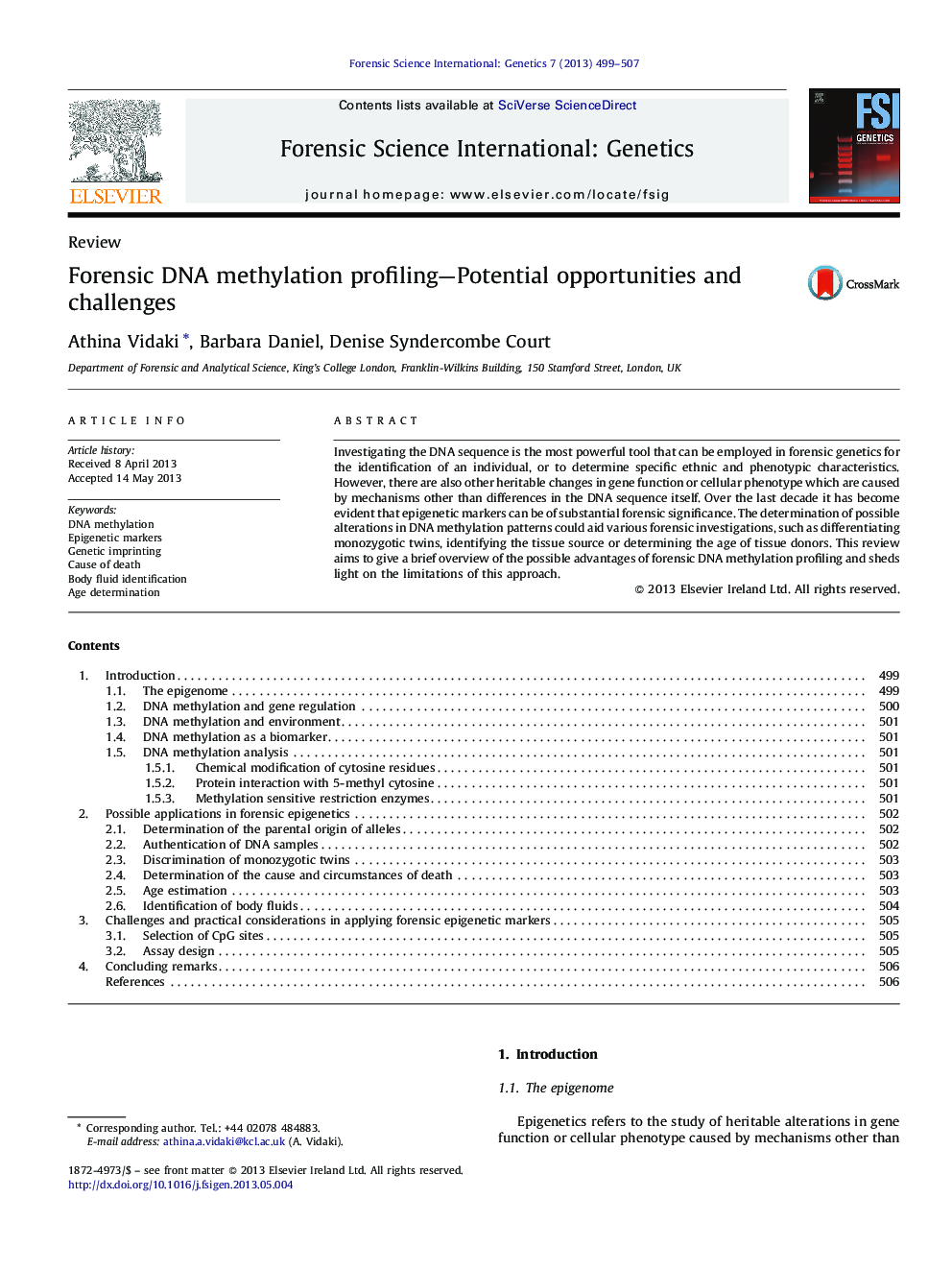| Article ID | Journal | Published Year | Pages | File Type |
|---|---|---|---|---|
| 10254144 | Forensic Science International: Genetics | 2013 | 9 Pages |
Abstract
Investigating the DNA sequence is the most powerful tool that can be employed in forensic genetics for the identification of an individual, or to determine specific ethnic and phenotypic characteristics. However, there are also other heritable changes in gene function or cellular phenotype which are caused by mechanisms other than differences in the DNA sequence itself. Over the last decade it has become evident that epigenetic markers can be of substantial forensic significance. The determination of possible alterations in DNA methylation patterns could aid various forensic investigations, such as differentiating monozygotic twins, identifying the tissue source or determining the age of tissue donors. This review aims to give a brief overview of the possible advantages of forensic DNA methylation profiling and sheds light on the limitations of this approach.
Keywords
Related Topics
Life Sciences
Biochemistry, Genetics and Molecular Biology
Genetics
Authors
Athina Vidaki, Barbara Daniel, Denise Syndercombe Court,
